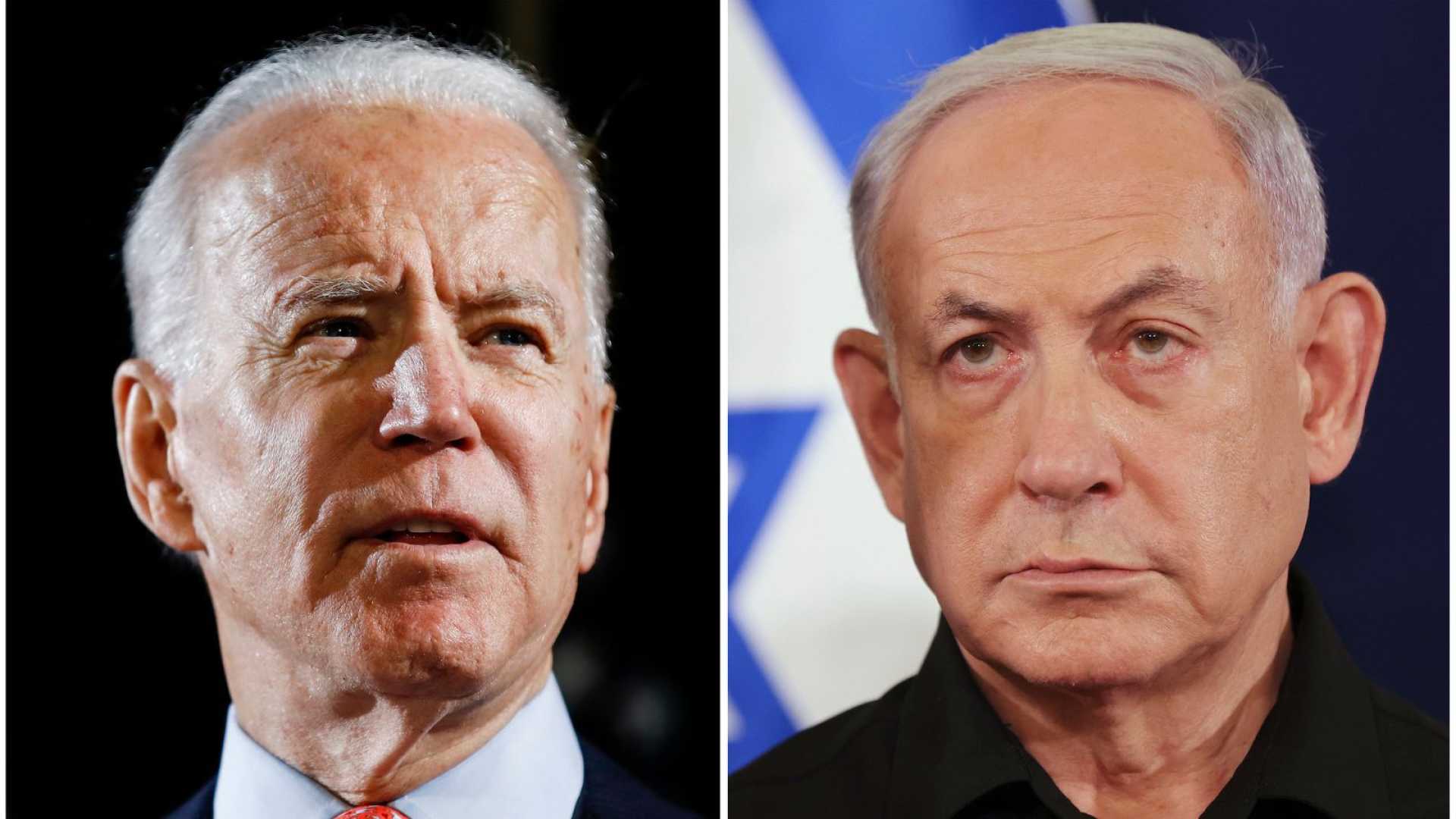News
Biden-Netanyahu Call Highlights Strained U.S.-Israel Relations Amid Escalating Tensions with Iran

U.S. President Joe Biden and Israeli Prime Minister Benjamin Netanyahu held a crucial phone conversation on Wednesday, amidst escalating tensions with Iran. Israel’s Defence Minister, Yoav Gallant, has vowed that any Israeli military strike against Iran will be “lethal, precise and surprising.” The phone call, which lasted 30 minutes, was the first official communication known between Biden and Netanyahu in this context.
The call took place during heightened conflicts between Israel and Iran-backed groups, including the Lebanese Hezbollah, without a visible path toward a ceasefire with Iran-backed Hamas in Gaza. White House Press Secretary Karine Jean-Pierre characterized the call as “direct and very productive,” acknowledging existing disagreements between the two leaders.
The Middle East has been bracing for Israel’s response to a missile attack launched by Tehran in retaliation for increased Israeli military activity in Lebanon. Fortunately, the Iranian strike resulted in no casualties within Israel. Following the conversation with Biden, Gallant released a video message describing the Iranian missile attack on October 1 as a failure and warned, “Whoever attacks us will be hurt and will pay a price. Our attack will be deadly, precise and above all surprising.”
Netanyahu has vowed that Iran will face consequences for the missile attack, while Tehran has threatened significant retaliation, stoking fears of a wider conflict in the oil-rich region potentially involving the United States. U.S. officials have expressed support for Israel targeting Iran-backed entities such as Hezbollah and Hamas; however, they have struggled to mediate a ceasefire in Gaza.
Relations between Biden and Netanyahu have remained tense, primarily over the Israeli management of the Gaza conflict and activities against Hezbollah. A new book by journalist Bob Woodward highlights the strained nature of their interactions, reporting that Biden had harshly questioned Netanyahu’s strategy following Israeli military actions near Beirut and in Iran.
Following the phone call, Israel’s U.N. Ambassador Danny Danon acknowledged the U.S. support and reiterated Israel’s commitment to retaliate against the Iranian attack, stating, “We will choose the locations. It will be painful for the Iranian regime.” Gallant had postponed a visit to the Pentagon, upon Netanyahu’s request, until after consulting with President Biden.
American officials have expressed frustration at Israel’s independent military actions, including the recent killing of Hezbollah leader Hassan Nasrallah and technological disruptions against Hezbollah operatives in Lebanon, without prior discussion with U.S. counterparts.
President Biden, although endorsing a measured response from Israel, has voiced concern over direct strikes on Iranian assets and has faced internal criticism over his administration’s handling of military support and diplomacy with Israel.
Political dynamics in the U.S. have been impacted as Vice President Kamala Harris, amidst her presidential campaign, was also part of the call, facing electoral challenges over the administration’s Middle East policies. This situation is critical as the November 5 election against Republican candidate Donald Trump approaches, with recent polling in Michigan highlighting tight competition.












